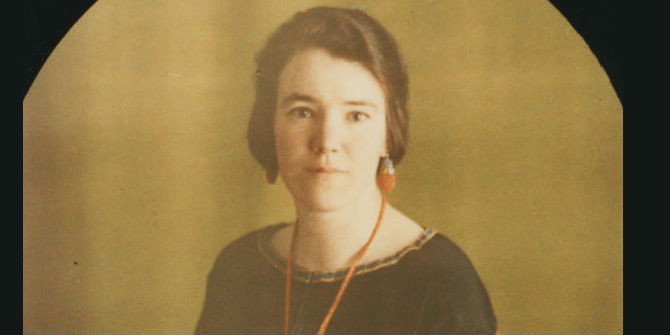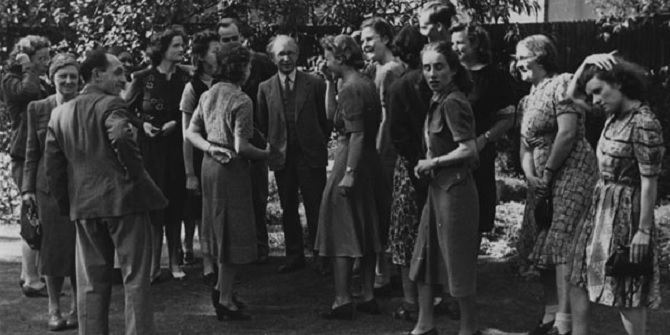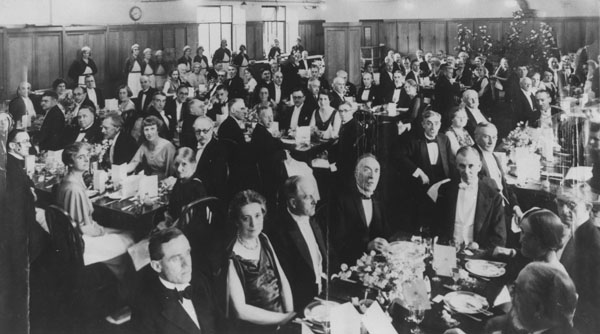Lachezar Grudev introduces LSE alumna Vera Smith, a pioneering yet little-known female economist who studied at LSE in the 1930s and went on to become a leading voice in free banking and on the Italian and French economies.
Vera Smith (1912-1976) studied economics at the London School of Economics and Political Science from 1930 to 1935. She was later remembered by her doctoral supervisor and Nobel prize laureate the Austrian economist Friedrich A Hayek as an economist endowed with high intelligence. After the Second World War, the reconstruction of the Italian economy was the research topic that enabled Vera’s emancipation from the long shadow of her husband, the German economist Friedrich A Lutz, who owed his success in large part to Vera’s support. Completely forgotten in her native England, my article is a homage to the former LSE economist and courageous woman who was not afraid of standing against dominant views in the search for the truth.
Vera Constance Smith was born on 28 April 1912, in Faversham, a small town in Kent. She began her study of economics at LSE in 1930, in the middle of the period described by Hayek as the years of high theory. Lionel Robbins, who transformed the section of economics into an internationally renowned research institute, recalled that LSE possessed so many resources then that it could attract the greatest minds of the time who significantly contributed to the development of economic theory. Vera attended classes taught by Hayek, Robbins, Theodore Gregory, and the future Nobel prize laureate John Hicks. Another future Nobel prize laureate and student of the LSE, Ronald Coase, benefited from Vera’s notes on Robbins’s lecture about political economy.
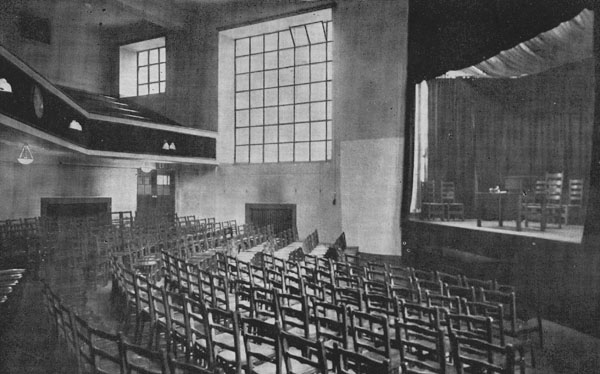
Vera graduated with a doctoral thesis supervised by Hayek. Upon his recommendation, she went to Freiburg in Southern Germany where she studied the German monetary and banking system. There, she met Friedrich, her future husband, who at the time was teaching money and banking. Vera convinced Friedrich to spend the academic year 1934/1935 in England. With financial support from the Rockefeller Foundation, Friedrich attended classes at LSE during the first eight months and at Cambridge during the last four. This was Lutz’s first step towards becoming the most successful student of Walter Eucken, the founder of Freiburg School of Economics and one of the intellectual fathers of the German economic miracle after the Second World War.
In May 1935, Vera submitted her doctoral thesis “Free Banking, or, A Reconsideration of the Historical and Analytical Basis of Central Banking”, later published as The Rationale of Central Banking and the Free Banking Alternative ([1936] 1990). The book remains the most important document in defence of free banking that demonstrated the weaknesses of the monopolistic position of central banking. Vera arrived at the conclusion that central banks did not occur as a natural outcome but arose from privileges secured by governments to issue banknotes.
On 31 March 1937, Friedrich and Vera got married. The day after their wedding, the newly married couple sailed to the USA, where Friedrich used the opportunity provided by another grant from the Rockefeller Foundation to find a job in the American academia. In Germany, the Nazi Party had vetoed Friedrich’s chance of being appointed at several universities due to his intellectual closeness to Eucken, who was the voice of latent opposition against the Nazi regime. The integration into US academia was not easy for Friedrich. In his letters to Eucken, he described Vera as being better prepared because she was not only a native speaker but also participated in discussions on economic theory with more insightful and convincing arguments than he did. This indicated the high level of her LSE education, which Friedrich had only experienced for eight months.
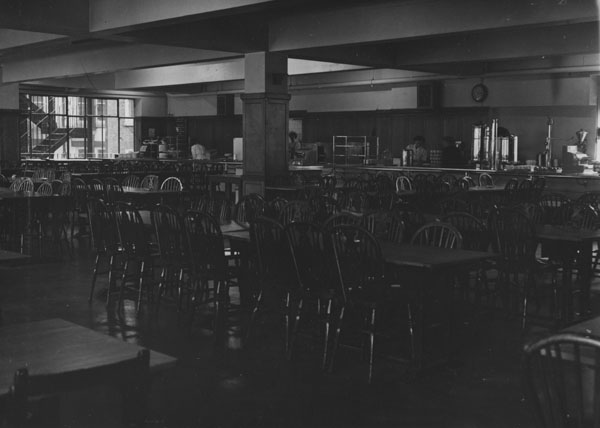
Eventually, in 1938, Friedrich found a position as an instructor at Princeton, at the time a rather male-dominated university. There he made a stellar career as a full professor of money and banking within eight years, a relatively fast career advancement compared to his colleagues. Vera worked at the International Financial Section and the League of Nations, both at Princeton. Despite Friedrich’s successful career, the couple decided to return to Europe after the war. The Princeton dean concluded that an instrumental “factor in his return … was his English wife, who never seemed entirely happy this side of the water”. Friedrich’s letters also confirmed Vera’s uneasiness with life in the US. The most important common project during the Princeton period remains The Theory of Investment of the Firm (1951). This book concentrated on the factors that affected firms’ investment policy. Most of the assumptions and ideas were influenced by Hayek, who, during his LSE period, published many works on capital theory, works that Vera studied during her time at LSE.
On the invitation of the Bank of Italy’s research department in 1949, Vera and Friedrich examined the conditions of the Italian economic recovery after the war. The Italian economy would become the most important research object in Vera’s career. Subsequently, a division of labour between Vera and Friedrich crystalised, particularly after the couple moved to Europe in 1953. While Friedrich became Professor of Social Economics at the University of Zurich, where he researched German and Swiss economic systems, Vera studied the problems related to the Italian and French economies. Her publication list includes high-quality papers published in leading journals, such as the Quarterly Review of Economics and Economica, where she contributed to modern macroeconomic theory. In 1948, Vera and Friedrich became members of the Mont Pèlerin Society. The society, founded by Hayek in 1947 and twice presided over by Vera’s husband, followed the purpose of bringing together economists, scientists and publicists whose research programmes were in the spirit of liberalism.
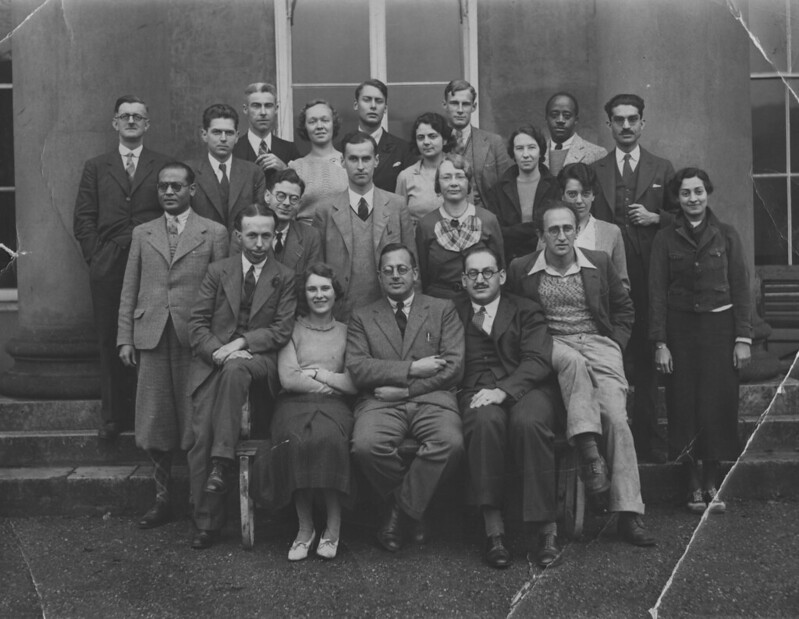
Vera’s contributions to the Italian and French economic systems are Italy: A Study in Economic Development (1962) and Central Planning for the Market Economy (1969), respectively both remarkable examples of Vera’s strong economic position. The book on Italy is still cited by Italian economists due to her convincing arguments that delineated the cleavage between underdeveloped southern Italy and the relatively wealthy northern region. According to Vera, the political unification did not contribute to the unification of the Italian labour market. Financial support for, and the protection of, the southern enterprises did not allow the utilisation of resources in a more efficient and productive way, so that the gap between the two regions had been increasing. Taking into account how sensitive this topic in Italy could be, her arguments are an expression of a rather courageous position.
With her book on the French economy, Vera took another courageous stance by criticising the dominant views of the apparently successful French indicative planning, promoted by Charles de Gaulle himself and implemented by leading economists such as Jean Monnet and Pierre Massé. Vera recognized the problematic purpose of indicative planning, which aimed to reduce uncertainty in firms’ investment decisions by forecasting the future developments of key economic factors. For Vera, an inherent feature of market economy was that enterprises held different expectations, made different judgements and had access to specific information. Enterprises made their own decisions independently from one another so that any general forecast would not only be impossible, but would even jeopardise the functioning of the market economy because this forecast presupposed interventions in the market economy.
After a short illness, Friedrich died on 4 October 1975 and Vera on 20 August 1976 in Zurich. Vera and Friedrich belong to the leading economist couples, such as Rose and Milton Friedman, Elinor and Vincent Ostrom and LSE co-founders Beatrice and Sidney Webb. But without Vera’s relentless support, courageous positions and her high level of LSE education, Friedrich would not have had the chances of a successful academic career, and the political economy would have missed another couple of economists researching for free societal and economic orders.
References
Caldwell, Bruce and Hansjörg Klausinger. 2022. Hayek: A Life 1899–1950. Chicago: University of Chicago Press.
Hayek, Friedrich A. (1963) 1995. “The Economics of the 1930s as Seen from London.” In Contra Keynes and Cambridge: Essays, Correspondence, edited by Bruce Caldwell, 49–73. Vol. 9 of The Collected Works of F A Hayek. Chicago: University of Chicago Press.
Grudev, Lachezar. 2024. “Emigration with a Pulled Handbrake: Friedrich A. Lutz’s Internal Methodenstreit.” History of Political Economy 56 (1): 41–72.
Howson, Susan 2010. Lionel Robbins. Cambridge: Cambridge University Press.
Lutz, Vera C. 1962. Italy: A Study in Economic Development. Oxford: Oxford University Press.
Lutz, Vera C. 1969. Central Planning for the Market Economy: An Analysis of the French Theory and Experience. London: Longmans.
Lutz, Friedrich A. and Vera Lutz. 1951. The Theory of Investment of the Firm. Princeton: Princeton University Press.
Masera, R. A. 1983. “Inflation, Stabilization and Economic Recovery in Italy After the War: Vera Lutz’s Assessment.” Banca Nazionale del Lavoro. Quarterly Review 144: 29–50.
Nobel Prize–Winning Economist: Friedrich A von Hayek. 1983. Los Angeles: Regents of the University of California.


